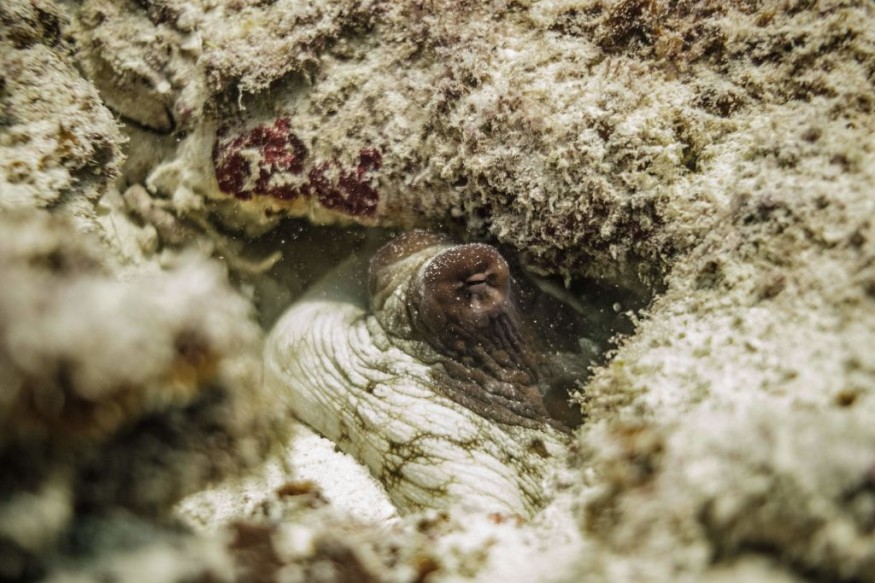
A newly planned fish farming octopus' facility in the Canary Archipelago will produce 3,000 metric tons of octopus average a year, implying 275,000 unique octopuses might be sacrificed.
Building Octopus Communities in a Hidden World
According to LiveScience, a Research which focuses on wildlife thoughts and integrity, conjures up images of Octopolis and Octlantis, two populations of untamed octopuses in Australia's Jervis Harbour.
In Octopolis, innumerable octopuses share - as well as struggle around - just several square meters of ocean floor. In these gloppy neighborhoods, octopuses form supremacy power structures, and they've launched an innovative appropriate habit: male octopuses struggle over territorial waters and, presumably, females by flinging particles at each other and cage fighting.
The plan to establish an octopus homestead is a suggestion to forge a new octopus' civilization, since when social creatures were together, they cannot avoid but build community. The suggestion to gather healthy animals into such an octopus sprawling metropolis might expand octopus heritage above and beyond anything seen in disposition or confinement, as posted in The Conversation.
It is also a proposition to construct a special type of octopus: the cultural tendencies combined with the quiescent state will generate a unique climate segment which might influence successive progression.
Male octopuses engage in a variety of oppositional tendencies in their battles for authority, which include flinging scallop casings to guard their dungeon and the mantle up view, which renders an octopus appear like a threatening mutant.
Researchers also acquainted agricultural livestock, such as Angus cows as well as Chocktaw hogs, were bred in captivity and are completely distinctive from the living creatures from which they progressed.
While BBC News also claimed that the concept of wildlife civilization motivated much future Japanese primatology, but way of life did not generate considerable prominence in North America and Europe till the 1999, when one paper about cultural context in chimps was printed.
What Octopolis implies can transpire in the environment is also being witnessed in confined octopuses: octopuses will create leadership structures when residing in an extremely packed captivity setting.
If an octopus homestead is established and then deserted, thousands of cultivated culture octopuses might be put back into the water and anticipated to thrive. From then on, indication of culture - group-typical activities that are collectively learnt - was being discovered throughout the wildlife species, notably fishes, fowl, as well as invertebrates.
The Creation of Octopolis Civilization
Researchers learnt through the numerous costly initiatives to rehabilitate Keiko, the deadly whale from the Free Willy series, that effective repatriation of confined exotic creatures into the environment is difficult.
It really would produce thousands and thousands of Keikos, which are aquacultural creatures acquired from the animal world and kept in confinement. Experts are only now discovering that octopuses have emotions and culture, and we are beginning to reconsider current intensive animal farming practices.
Building an octopus homestead is a pledge to create a novel type of animal that is dependent on mankind for survival. Octopuses are intelligent as they are complex creatures who experience discomfort.
The revelation of octopus societies surprised scientific community, according to Nature, who had previously identified octopuses as quiet contemplation living creatures that interacted with others in various aspects: scavenging, ignoring getting chased, and mate selection.
What is occurring on in Octopolis and Octlantis is appropriately referred to as octopus' civilization. The writers of the study deduce that neither of these approaches of killings are empathetic, and they advise against octopus' cultivation. Humanlike creatures used for meals are shielded by environmental protection laws and are killed in aspects that are designed to limit their suffering.
Kinji Imanishi, a Japanese primatologist, was one of the early advocates of animal civilizations, observing in the 1950s that a colony of Japanese macaques on Koshima Island regularly rinse fresh vegetables in freshwater prior consuming them.
Related article : Increasing Number of Octopuses are Using Trash in the Ocean for Shelter
© 2025 NatureWorldNews.com All rights reserved. Do not reproduce without permission.





